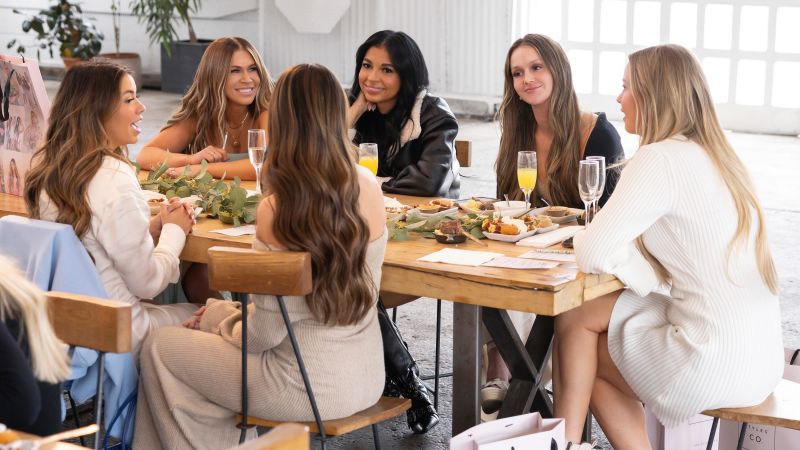**The Cultural Impact of “The Secret Lives of Mormon Wives”**
In recent months, 27-year-old Sydney Nowak was pleasantly surprised to encounter the trending beverage known as “dirty sodas” on the menu of Top Golf in Las Vegas. This non-alcoholic drink has gained a cult following, especially among young audiences, largely due to its frequent depiction on Hulu’s hit show “The Secret Lives of Mormon Wives.” What caught Nowak off guard even more, however, was discovering that her 19-year-old cousin visiting from the United Kingdom was well aware of this unique beverage. “I would have never expected someone else who’s not from this country to know what a dirty soda is, but we connected over the fact that it’s so relevant in pop culture amongst the younger groups today,” said Nowak, reflecting the show’s influence beyond U.S. borders.
“The Secret Lives of Mormon Wives” introduces viewers to a group of eight married women, all Mormons in their 20s and early 30s, who reside in Utah. Following the significant success of its inaugural season—reportedly the most-viewed unscripted original series on Hulu for the year—the show is set to enter a second season. Nielsen’s data indicates that it was the third most-watched original series across major streaming platforms during its launch week. This phenomenon highlights how the program stands apart from the often sensational lifestyle shows that dominate today’s reality TV landscape. The series is part of a broader trend of highlighting diverse narratives that resonate with audiences who may previously have been unfamiliar with these lifestyles.
Continued interest in the series has been fueled by podcasts such as “BusyBabes,” co-hosted by Nowak and Hannah Jaeger, where they discuss its cultural significance. They noted, “You know how our parents or people a little bit above us in age group were obsessed with ‘The Real Housewives?’ Is this our ‘Real Housewives?’,” drawing a parallel between audiences of different generations. Indeed, data shows that Gen Z and young millennials constituted over half of the viewing demographics during the show’s peak week.
Before their appearance on Hulu, the featured Mormon mothers attracted considerable attention on TikTok under the hashtag #Momtok, amassing nearly 16 million followers through candidly sharing their experiences as young mothers. The cultural contrast encapsulated in the series appears to tantalize viewers unfamiliar with the Mormon lifestyle—especially aspects such as their traditional aversion to coffee and alcohol in favor of concocted “dirty sodas.” Kathy M. Newman, an English professor at Carnegie Mellon University, described this allure as stemming from a “prurient fascination with some sort of culture that’s perceived as different.”
As the popularity of the show burgeoned, elements of controversy began to surface. Taylor Frankie Paul, one of the mothers featured, revealed that herself and other couples had been engaging in “soft-swinging,” highlighting the complexities within their seemingly conservative community. This scandal garnered significant attention, leading to a swift move by producers to finalize the production of the show.
The impact of the series has also highlighted figures like Nara Smith and Hannah Neeleman, who have emerged as influential voices in the evolving discourse around traditional gender roles and expectations. Their popularity underscores how today’s immense societal challenges—such as the pandemic’s toll on mental health and growing economic pressures—have contributed to a surge in interest toward traditional family values and gender norms.
Joel Penney, an associate professor at Montclair State University, theorizes that young viewers are not simply captivated by the shock value but are also exploring reclaiming traditional roles as a means of establishing a sense of direction amidst uncertainty. “There’s a sense of ‘we’re losing a sense of meaning’ and ‘we need some direction,’” he articulated, suggesting that this trend taps into an ongoing dialogue about identity and societal roles.
Interestingly, while the series embraces some of the more progressive aspirations of the Mormon wives, addressing topics such as sexuality and divorce, it simultaneously acts as a foil to the entrenched conservatism of their community. This blend of progressive and traditional elements appears to resonate well with viewers, keeping them engaged and eager for what’s next.
As Nowak mused, “It’s keeping me on the edge of my seat,” showcasing how “The Secret Lives of Mormon Wives” has skillfully captured a multi-generational audience, connecting deeply with cultural conversations on identity, lifestyle, and values in contemporary society.



